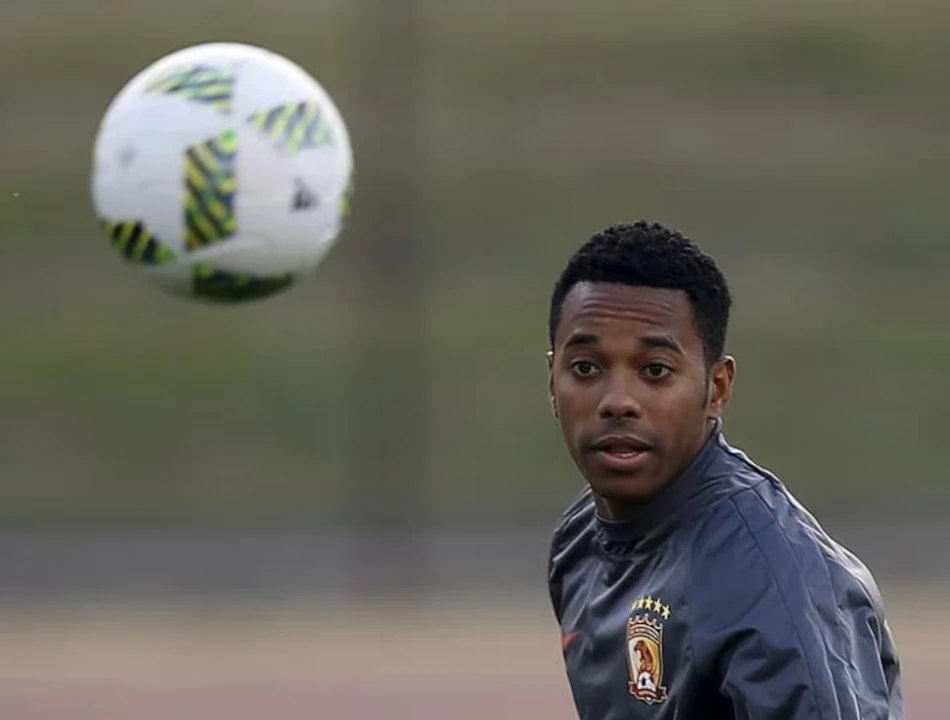
Robinho's Hidden Talents: From Football Stardom to Prison Rehabilitation
Former Football Star Robinho Learns Tech Skills in Prison, Plans Startup with Convicted Hacker
Brazilian football legend Robinho is using his time behind bars to acquire new skills and forge unlikely partnerships. After completing his first year in Brazil's Tremembé prison, the 41-year-old former Real Madrid and Manchester City star has reportedly teamed up with a convicted hacker to plan a technology company upon their release, marking an unusual career pivot for the disgraced athlete.
From Pitch to Prison Cell
Robinho, who dazzled fans at some of Europe's most prestigious clubs including Real Madrid, Manchester City, AC Milan, and his hometown Santos, is serving a nine-year sentence for sexual assault. The conviction stems from a 2013 incident involving an Albanian woman at a Milan nightclub during his time with AC Milan.
The former Brazil international's fall from grace represents one of football's most dramatic declines, transforming from a player once valued at over €30 million to an inmate learning electronics repair in a Brazilian correctional facility.
An Unlikely Business Partnership
Inside Tremembé prison, Robinho has formed a partnership with Walter Delgati, a hacker serving an eight-year sentence for infiltrating Brazil's judicial computer systems. According to Spanish newspaper Marca, the unlikely duo is planning to establish a joint venture that would combine Robinho's residual celebrity status with Delgati's technological expertise.
This partnership highlights how modern entrepreneurship can emerge from unexpected circumstances. The plan appears to leverage the growing intersection between sports celebrity and technology sectors, similar to how retired athletes in other countries have successfully transitioned into tech investments and digital ventures.
Skills Development Behind Bars
Robinho's prison routine demonstrates a strategic approach to rehabilitation and sentence reduction. He has completed a 600-hour electronics course, enabling him to repair televisions and radios for fellow inmates. Additionally, he participates in a reading club, tends to the prison garden, and has finished all ten modules of a work and citizenship program.
Under Brazil's prison system, inmates can reduce their sentences by one day for every 12 hours of productive work or study—a policy that incentivizes skill development and rehabilitation over purely punitive measures.
Celebrity Rehabilitation in the Digital Age
Robinho's case reflects broader trends in how fallen celebrities attempt to rebuild their careers through technology and entrepreneurship. Unlike traditional paths back to public relevance, the digital economy offers new opportunities for reinvention, even for those with severely damaged reputations.
His situation parallels other high-profile individuals who have used periods of forced isolation to acquire new skills. However, the combination of his criminal conviction and the nature of his planned partnership with a convicted cybercriminal raises questions about public acceptance and business viability.
Market Reality Check
While the partnership may seem innovative, significant challenges await. Robinho's conviction for sexual assault has largely erased his commercial value in traditional sports marketing. Any future business venture will need to overcome substantial reputational hurdles and potential consumer boycotts.
The technology sector, while often more forgiving of past controversies than traditional industries, still faces increasing scrutiny over the backgrounds of founders and key personnel. Investors and partners may be reluctant to associate with individuals carrying serious criminal convictions, regardless of their celebrity status or technical capabilities.
Nevertheless, Brazil's entrepreneurial ecosystem has shown resilience and creativity in the past, and the combination of sports celebrity and technical expertise could find niche markets, particularly in regions where Robinho's football legacy still carries positive associations.
Most Viewed News

 Sara Khaled
Sara Khaled






